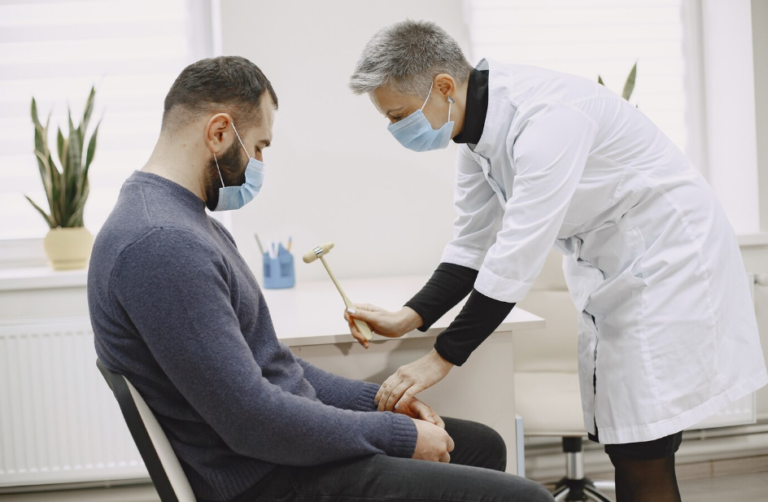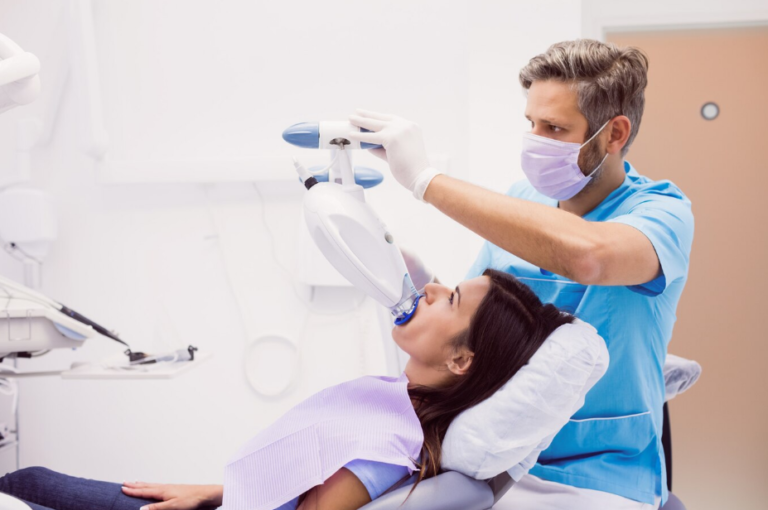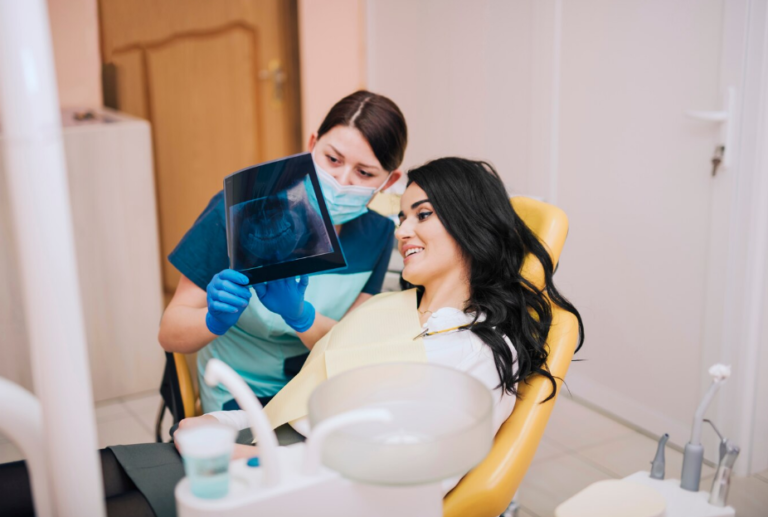Finding Your Perfect Smile: A Guide to Choosing a Dentist in Atlanta
Defining Your Dental Needs
Before you start your search for a dentist in Atlanta, it’s really important to figure out exactly what you need. This isn’t just about finding someone to clean your teeth; it’s about finding a partner in your oral health. A good starting point is to consider your current oral health status and what you want to achieve long-term. This will help you narrow down your options and find a dentist who is the right fit for you. The first step in finding your perfect smile is to define your dental needs.
Routine Check-ups and Cleanings
These are the bread and butter of dental care. Regular check-ups allow your dentist to catch problems early, before they become big, expensive issues. Cleanings remove plaque and tartar that you can’t get rid of at home, preventing cavities and gum disease. Think of it like this:
- How often do you want to go? Every six months is standard, but some people might need more frequent visits.
- Do you have any specific concerns, like sensitivity or a history of cavities?
- Are you looking for a dentist who uses the latest technology for cleanings, like ultrasonic scalers?
Specialized Dental Treatments
Do you need more than just routine care? Maybe you’re considering teeth whitening, Invisalign, or have a specific issue like TMJ. It’s important to know if a dentist offers the specialized treatments you might need or want. Some things to consider:
- Do they offer cosmetic dentistry services like veneers or bonding?
- Are they experienced in restorative procedures like implants or bridges?
- Do they have specialists on staff or refer out to trusted partners?
Long-Term Dental Care Goals
What do you want your smile to look like in 5, 10, or 20 years? Are you focused on maintaining healthy gums, preventing tooth loss, or improving the appearance of your smile? Thinking about your long-term goals will help you find a dentist who shares your vision and can create a plan to help you achieve it. Consider these points:
- Are you interested in preventative care to avoid future problems?
- Do you have any concerns about aging and its impact on your teeth?
- Are you looking for a dentist who can help you create a comprehensive oral health plan?
Considering Location and Accessibility
When choosing an emergency dentist in Atlanta, it’s easy to get caught up in credentials and fancy technology. But let’s be real, location matters, especially in a city like Atlanta. You don’t want to dread your dental appointments because of a long, stressful commute. Think about how location and accessibility fit into your daily life.
Proximity to Home or Work
Ideally, your dentist’s office should be conveniently located near your home or workplace. This makes it easier to schedule appointments without disrupting your entire day. Consider these points:
- Reduced Travel Time: A closer dentist means less time spent in the car, freeing up your schedule for other activities.
- Lunchtime Appointments: If your dentist is near your workplace, you might be able to squeeze in appointments during your lunch break.
- Easy to Reach in an Emergency: In case of a dental emergency, a nearby dentist can provide quicker access to care.
Navigating Atlanta Traffic
Atlanta traffic is notorious, and it can significantly impact your dental appointment experience. Here’s what to keep in mind:
- Rush Hour Considerations: Plan your appointments to avoid peak traffic hours. Early morning or mid-day appointments might be better options.
- Alternative Routes: Familiarize yourself with alternative routes to the dentist’s office in case of traffic congestion.
- Parking Availability: Check if the dentist’s office has ample parking or if you’ll need to factor in extra time to find a parking spot.
Convenient Office Hours
Finding a dentist with office hours that align with your schedule is crucial. Consider these factors:
- Early Morning or Evening Appointments: If you have a busy work schedule, look for a dentist who offers appointments before or after regular business hours.
- Weekend Availability: Some dentists offer Saturday or Sunday appointments, which can be convenient for those with weekday commitments.
- Appointment Flexibility: Inquire about the dentist’s policy on rescheduling or cancelling appointments, as unexpected events can arise.
Leveraging Reviews and Recommendations
When you’re trying to find the right dentist in Atlanta, don’t underestimate the power of what other people are saying. Leveraging reviews and recommendations can really help you narrow down your choices and get a feel for what different dental practices are like. It’s like getting insider information before you even step foot in the office.
Interpreting Online Reviews
Online reviews can be super helpful, but you’ve got to know how to read them. Here’s what I usually do:
- Look for patterns: Don’t just focus on one glowing review or one bad one. See if there are recurring themes. Are people consistently praising the dentist’s gentle touch or complaining about long wait times?
- Consider the source: Is the review on a reputable site? Are the reviewers verified? Take everything with a grain of salt, because you never know who’s writing them.
- Pay attention to the details: A review that says “Great dentist!” isn’t as helpful as one that says “Dr. Smith took the time to explain my treatment options and made me feel comfortable.” Specifics are key.
Seeking Personal Referrals
Honestly, word-of-mouth is still one of the best ways to find a good dentist. Ask your friends, family, coworkers, or neighbors if they have any recommendations. People you trust are more likely to give you an honest opinion. Plus, they can tell you about their personal experiences, which can be really valuable.
Assessing Dentist Responses to Feedback
I always check to see if the dentist or practice responds to online reviews, especially the negative ones. It shows they care about their patients’ experiences and are willing to address concerns. A thoughtful, professional response can tell you a lot about their commitment to customer service. If they’re dismissive or defensive, that’s a red flag for me.
Evaluating Dentist Experience and Expertise
When you’re on the hunt for a dentist, especially if you need an emergency dentist in Atlanta, it’s smart to look into their background. You want someone who knows their stuff, right? It’s not just about a friendly face; it’s about trusting your oral health to a capable professional. Here’s what I usually consider:
Years of Practice and Case Experience
How long has the dentist been practicing? It’s not the only thing that matters, but it can tell you a lot. Someone with years under their belt has likely seen a wider range of cases and situations. I like to think about it this way:
- More years often mean more experience dealing with different dental issues.
- They’ve probably honed their skills over time.
- They might have a better understanding of long-term dental health trends.
Specialized Certifications and Training
Does the dentist have any special certifications or extra training? Maybe they’re really good with implants, or perhaps they’ve got advanced training in cosmetic dentistry. It’s worth checking out. For example:
- Look for certifications from recognized dental boards.
- See if they’ve taken continuing education courses in specific areas.
- Ask about any specialized training they’ve received.
Matching Dentist Skills to Your Needs
This is super important. If you need a root canal, you want a dentist who’s done a ton of them. If you’re after cosmetic work, find someone with a portfolio that wows you. Here’s my approach:
- Think about what you need now and what you might need in the future.
- Ask the dentist directly about their experience with those procedures.
- Don’t be afraid to get a second opinion if you’re not sure.
The Importance of a Consultation
Setting up a consultation before committing to a dentist is super important. Think of it like a “meet and greet” before a big commitment. It gives you a chance to assess whether the dentist and their office are a good fit for you. This is your opportunity to get a feel for the place, the people, and the overall vibe. It’s more than just checking their credentials; it’s about finding a place where you feel comfortable and confident in the care you’ll receive. This is especially important when finding your perfect smile, so don’t skip this step!
Assessing Office Environment and Staff
First impressions matter, right? When you walk into the office, take note of the atmosphere. Is it clean and organized? Are the staff members friendly and welcoming? These things can tell you a lot about how the practice is run. A well-maintained and cheerful environment often indicates a dentist who cares about the details and values their patients’ comfort.
- Are you greeted promptly and with a smile?
- Does the office appear modern and well-kept?
- Do the staff members seem happy and engaged?
Understanding Technology and Tools
Modern dentistry has come a long way, and the technology used in a practice can significantly impact your experience and the quality of care you receive. During your consultation, ask about the types of equipment they use, such as digital X-rays or intraoral cameras. Understanding the technology can help you feel more confident in the dentist’s ability to provide accurate diagnoses and effective treatments.
- Do they use digital X-rays, which reduce radiation exposure?
- Do they offer computer-aided design/computer-aided manufacturing (CAD/CAM) technology for same-day crowns?
- Are they using modern sterilization techniques?
Gauging Communication Style and Comfort
Communication is key in any healthcare setting. You want a dentist who takes the time to listen to your concerns, explain treatment options clearly, and answer your questions thoroughly. A good dentist will make you feel heard and involved in your dental care decisions. If you feel rushed or dismissed during the consultation, it might be a sign that the dentist’s communication style isn’t the right fit for you.
- Does the dentist take the time to listen to your concerns?
- Do they explain treatment options in a way that you understand?
- Do you feel comfortable asking questions and expressing your concerns?
Prioritizing Modern Technology and Comfort
When you’re on the hunt for a dentist in Atlanta, don’t underestimate the importance of modern technology and patient comfort. It can really make or break your experience. A dentist’s office that keeps up with the times and cares about your well-being can make all the difference.
Advanced Dental Equipment
Think about it: old, clunky equipment versus sleek, modern tools. It’s not just about appearances. Advanced equipment often means:
- More accurate diagnoses: Digital X-rays, for example, expose you to way less radiation and give the dentist a clearer picture.
- Faster treatment times: CAD/CAM technology can speed up the process of getting crowns and bridges.
- Better outcomes: Lasers can be used for more precise and less invasive procedures.
Patient Comfort Measures
Going to the dentist can be stressful, so it’s great when a practice goes the extra mile to make you feel at ease. Look for things like:
- Comfortable seating: Support head pillows can make a big difference during longer appointments.
- Entertainment options: TVs or music can help distract you from any anxiety.
- A calming atmosphere: A clean, modern, and well-designed office can be surprisingly soothing.
Minimally Invasive Procedures
Nobody wants more work done than necessary. Modern dentistry is all about being gentle and preserving as much of your natural teeth as possible. This can mean:
- Laser dentistry: For certain procedures, lasers can reduce the need for cutting and stitches.
- Air abrasion: This is a less aggressive way to remove decay compared to traditional drilling.
- Teledentistry: Virtual consultations can help determine if a physical appointment is required, saving you time and potential discomfort.
Emergency Services and Comprehensive Care
When you’re searching for the right dentist, don’t just think about routine cleanings. Consider what happens when the unexpected occurs. A good dental practice offers comprehensive care, including emergency services, and focuses on keeping your teeth healthy in the long run.
Availability of Emergency Dental Care
Life happens, and sometimes it involves a dental emergency. A filling might fall out, a tooth could crack, or you might experience sudden, severe pain. It’s good to know your dentist has you covered. Here’s what to look for:
- After-hours support: Does the practice have a system for handling emergencies outside of regular business hours? This could be an answering service that connects you with the dentist or a designated on-call professional.
- Same-day appointments: Can they squeeze you in if you have an urgent issue? Some practices set aside time each day specifically for emergencies.
- Clear communication: How quickly do they respond to emergency calls or messages? A prompt response can make a big difference when you’re in pain or worried about a dental problem.
In-House Additional Services
Some dental offices offer a wider range of services than others. Having more services available in one place can be super convenient. Think about these possibilities:
- Specialists on staff: Does the practice have specialists like orthodontists, periodontists, or oral surgeons working there? This means you wouldn’t have to go to a different office for things like braces, gum disease treatment, or tooth extractions.
- Advanced procedures: Can they handle more complex procedures like root canals, dental implants, or cosmetic dentistry in-house? It saves time and often makes coordination easier.
- One-stop shop: The more services they offer, the less running around you have to do. It’s all about convenience and continuity of care.
Focus on Preventative Dentistry
While emergency care is important, preventing problems in the first place is even better. A dentist who emphasizes preventative dentistry will help you maintain good oral health and avoid future issues. Here’s what that looks like:
- Regular check-ups: They recommend and encourage regular check-ups and cleanings to catch problems early.
- Education and guidance: They take the time to educate you about proper brushing, flossing, and other oral hygiene practices.
- Personalized advice: They offer tailored advice based on your individual needs and risk factors, such as your diet, lifestyle, and medical history.






